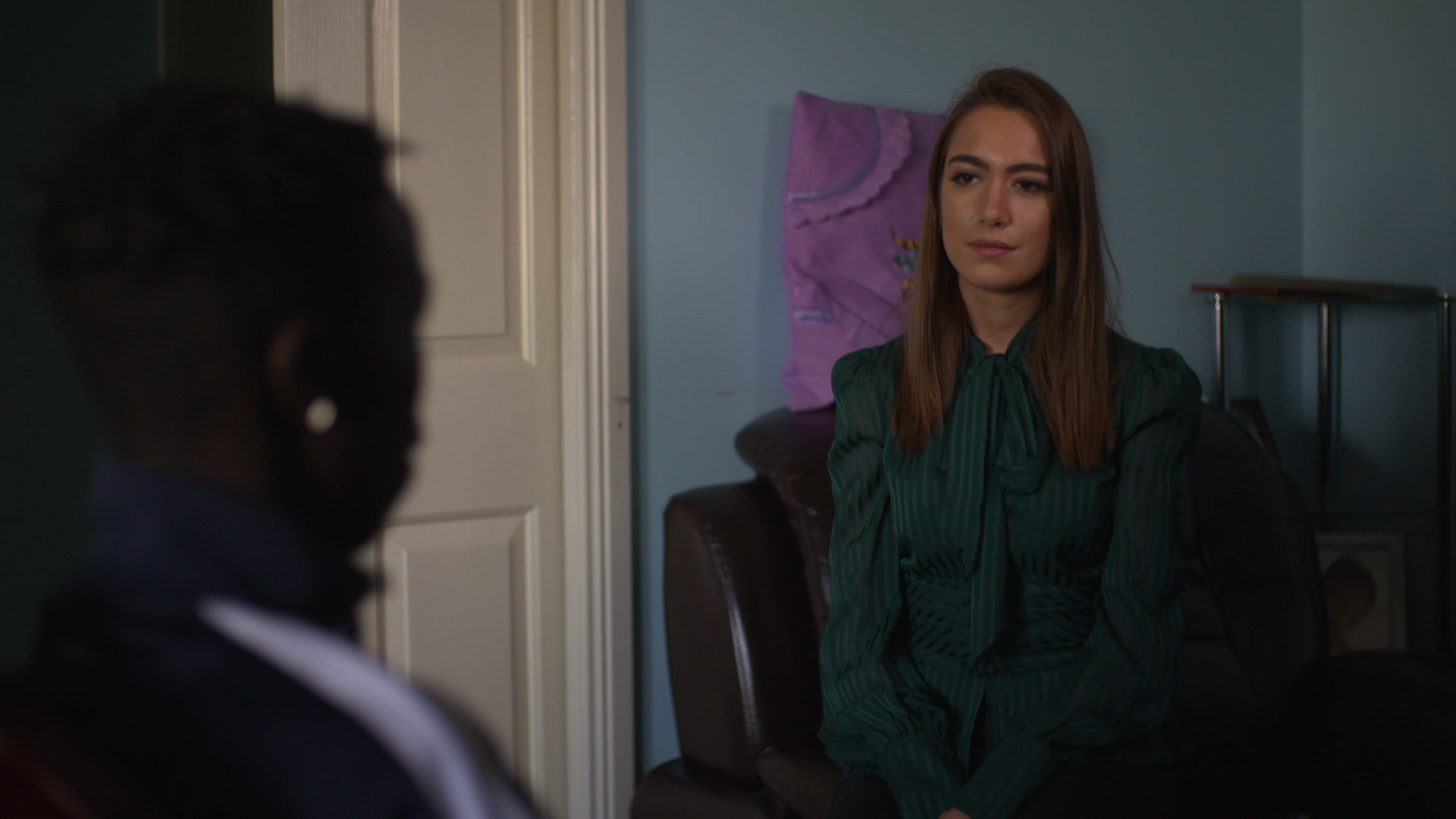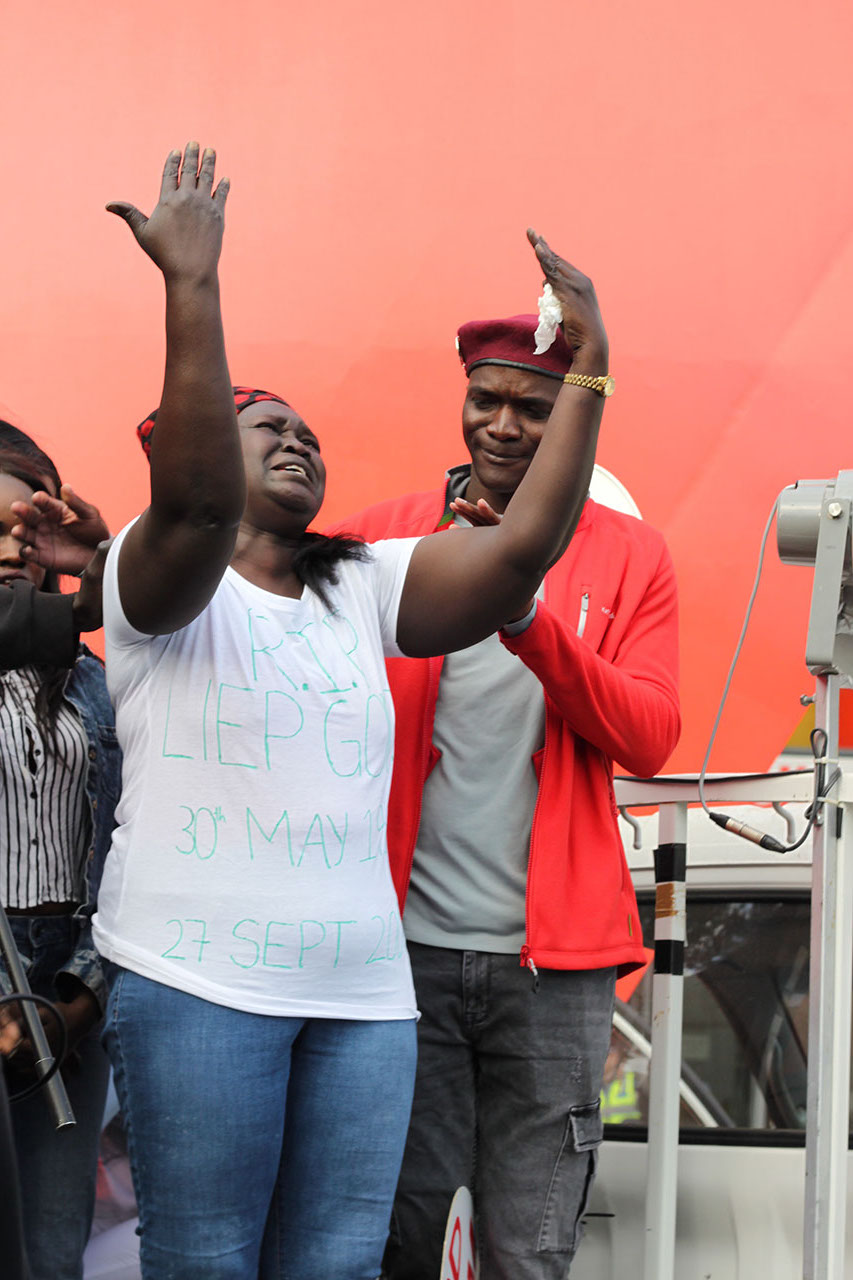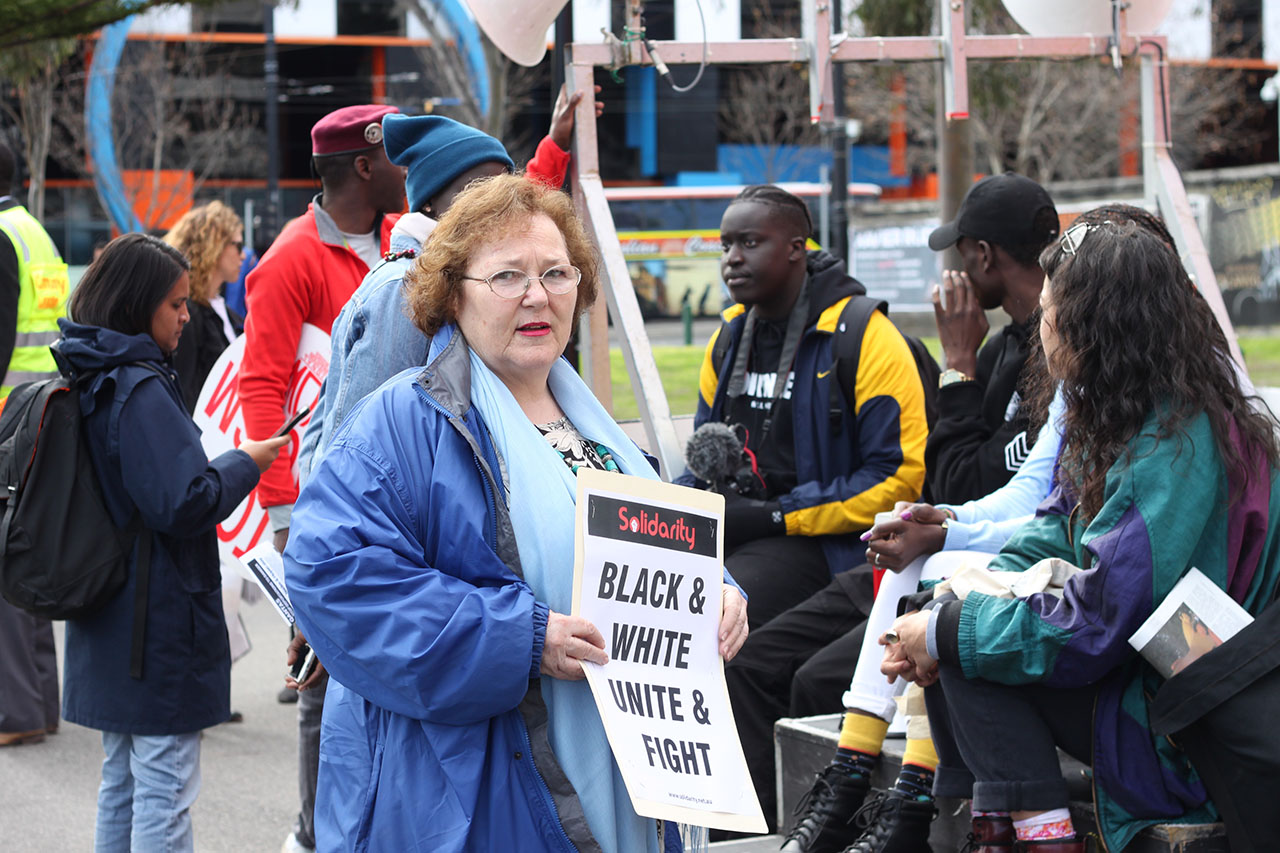On July 16, a 14-year-old South Sudanese boy was stabbed twice in bushland near Melton in Melbourne by two youths of Caucasian appearance.
For legal and privacy reasons, NITV will refer to him as ‘John’. John has been in hospital for the last three weeks - he's had two operations and still needs one more on his kidney.
He can hardly walk at the moment, but he is alive and home with his family.
“That was the worst feeling in my life, you know. I had two holes in my stomach. I thought, 'What the hell. What am I going to do?' Like I didn't know what to do,” John told NITV.
“I was on the floor. I looked dead. And my friend, I looked up and ... like he was traumatised. I saw on his face. He didn't know what to do either. And everyone was just crying.”
You haven’t heard about it on the news, because it was never reported this way – in fact it was hardly reported at all.
John chose to speak exclusively to NITV, because he believes if he doesn’t, nothing will change for his community.
“The stories are hyped up. You never know, like maybe that didn't happen. They just make it sound bigger. 'South Sudanese gang', what is that, you know? 'Apex', how is everyone 'Apex'? Like what the hell, what is that?
"This is not fair. Then when white people do criminal stuff, you don't see it on the news. Low key.” In fact, just 1.1 per cent of the total offenders in the state are Sudanese born (including South Sudanese), with 71.3 per cent being Australian born.
In fact, just 1.1 per cent of the total offenders in the state are Sudanese born (including South Sudanese), with 71.3 per cent being Australian born.

'John' speaks exclusively to NITV. Source: NITV News
The South Sudanese people make up just 0.07 per cent of the population of Victoria, and 0.5 per cent of the population of Australia.
John claims that following the incident the police tried to ‘lock up’ his friend who had simply been trying to help.
“I was so close to losing my friend. Like, you know, I nearly die and now like he's getting locked up. What did he do to get locked up? He was just trying to help me, you know,” he said.
In 2007 a similar attack occurred on a teenager in Melton following a comment by former Minister for Immigration Kevin Andrews.
“Kevin Andrews, the former Minister of Immigration, made that comment about the Sudanese, that they're not integrating into the Australian society,” Vice-Chairman of Victoria’s South Sudanese Community Association Awan Mading said.
“That was well-received by some vigilante and far-right groups they took the law into their own hands, and one of the Sudanese guy was attacked in Melton, similar to [John].
“It was an attack, it was a barrage, and after that the offenders were not caught by the police, and the incident, nothing was done about it.”
Following the attack on the teenager, the offenders sent racist text messages and made phone calls to the boy's brother.
The attack came just days after the funeral of Liep Gony, an 18-year-old South Sudanese man who was bashed to death in a racist attack. Since 2007, the ‘African gangs’ narrative has been running in the media, with it seemingly reignited by recent comments made by federal minister for Home Affairs and Immigration Peter Dutton.
Since 2007, the ‘African gangs’ narrative has been running in the media, with it seemingly reignited by recent comments made by federal minister for Home Affairs and Immigration Peter Dutton.

The mother of Liep Gony at a recent Channel 7 rally. Source: Madeline Hayman-Reber/NITV News
“The Victorian public is really outraged by some of the goings on. The reality is people are scared to go out to restaurants at night time because they're followed home by these gangs, home invasion and cars are stolen," Mr Dutton said on during an interview on 2GB Radio in January.
So how does the Sudanese community believe this has affected their youth?
Twenty-year-old organiser of the recent rally at Channel 7’s Melbourne office, Titan Debirioun, rejects the word ‘gangs’.
But he says it’s no surprise to him that South Sudanese youth act out.
As well as intergenerational trauma, offensive depictions of South Sudanese youth in the media - especially on Channel 7's Sunday Night recent segment - do not help.
“I mean, if you tell a child that there's something, like every single day of their lives, they keep on telling them, they keep on telling them, they're going to start believing it,” Mr Debirioun said.
“And it's going to do damage to how they see themselves and their own self image.”
The South Sudanese community sees similarities with how Indigenous Australians are treated by the legal system.
“There's a high number of the young South Sudanese now incarcerated in prisons, and some of them are being imprisoned for minor offences, similar to Aboriginal young people who are experiencing the same thing,” Mr Mading said.
“So when I look at it, race is clearly playing a role in this, and it's the same thing in America as well.”
“One of the great examples is the Aboriginal boy who was killed in Western Australia a few years back. That boy didn't get a, you know, he was murdered. The guy who murdered him wasn't even given didn't serve a fair justice,” he said.
“So when I look at these cases, they're very similar in a way because now, this, our Sudanese community are experiencing exactly what the Aboriginal people are experiencing.”
Despite Victoria Police telling the media that these children are not gangs, the media narrative has continued.
Standing together
Aboriginal Victorians have long been working with the South Sudanese community.
"The South Sudanese community, we actually need to connect with the Aboriginal community, and we are already having a working relationship with them," Mr Mading said.
"But the thing is, we are taking a fight that we're not winning. The [Aboriginal people] have tried, they never won. The [African Americans] have tried that, and they're not winning.
"That's the thing. So it's a system which is, is a system that needs a holistic approach in order to fight this system. So it's a systemic issue. That's how I can look at it." While they’re a strong community, they are a small community, and Greens MP Lidia Thorpe has called for Indigenous Australians to stand in solidarity with the South Sudanese.
While they’re a strong community, they are a small community, and Greens MP Lidia Thorpe has called for Indigenous Australians to stand in solidarity with the South Sudanese.

A woman stands in solidarity with the South Sudanese community. Source: Madeline Hayman-Reber/NITV News
“I think that some of our politicians need to take a good hard look at themselves, and stop being racist, and do the job that you're meant to be doing and that's serving all Victorians in a way that isn't racist, and in a way that's more inclusive,” she said.
“I invite all African people, every person of colour to come into parliament. Come and see me, you know. Let's mix it up. Let's get as many Blackfullas in this place as we possibly can."




